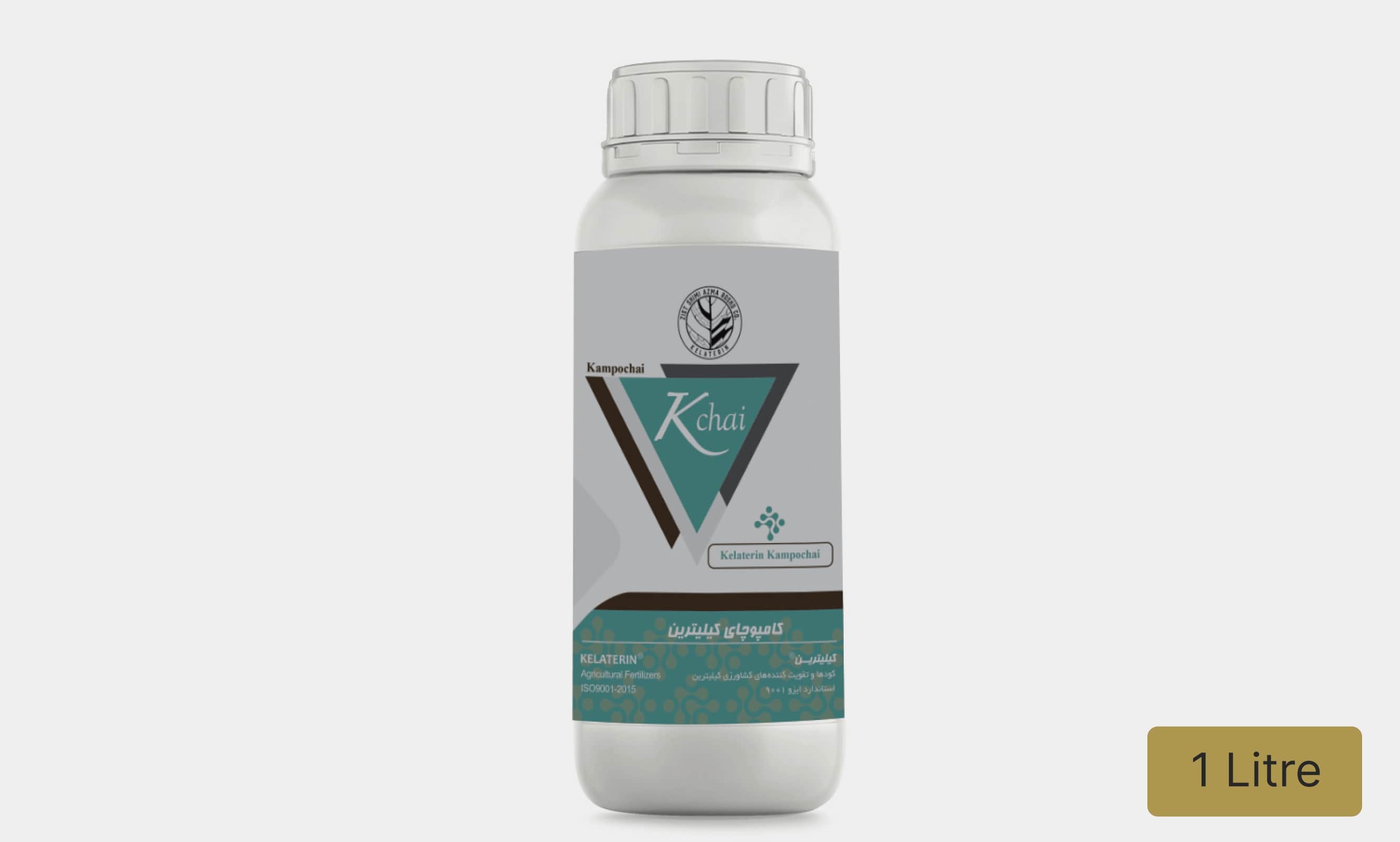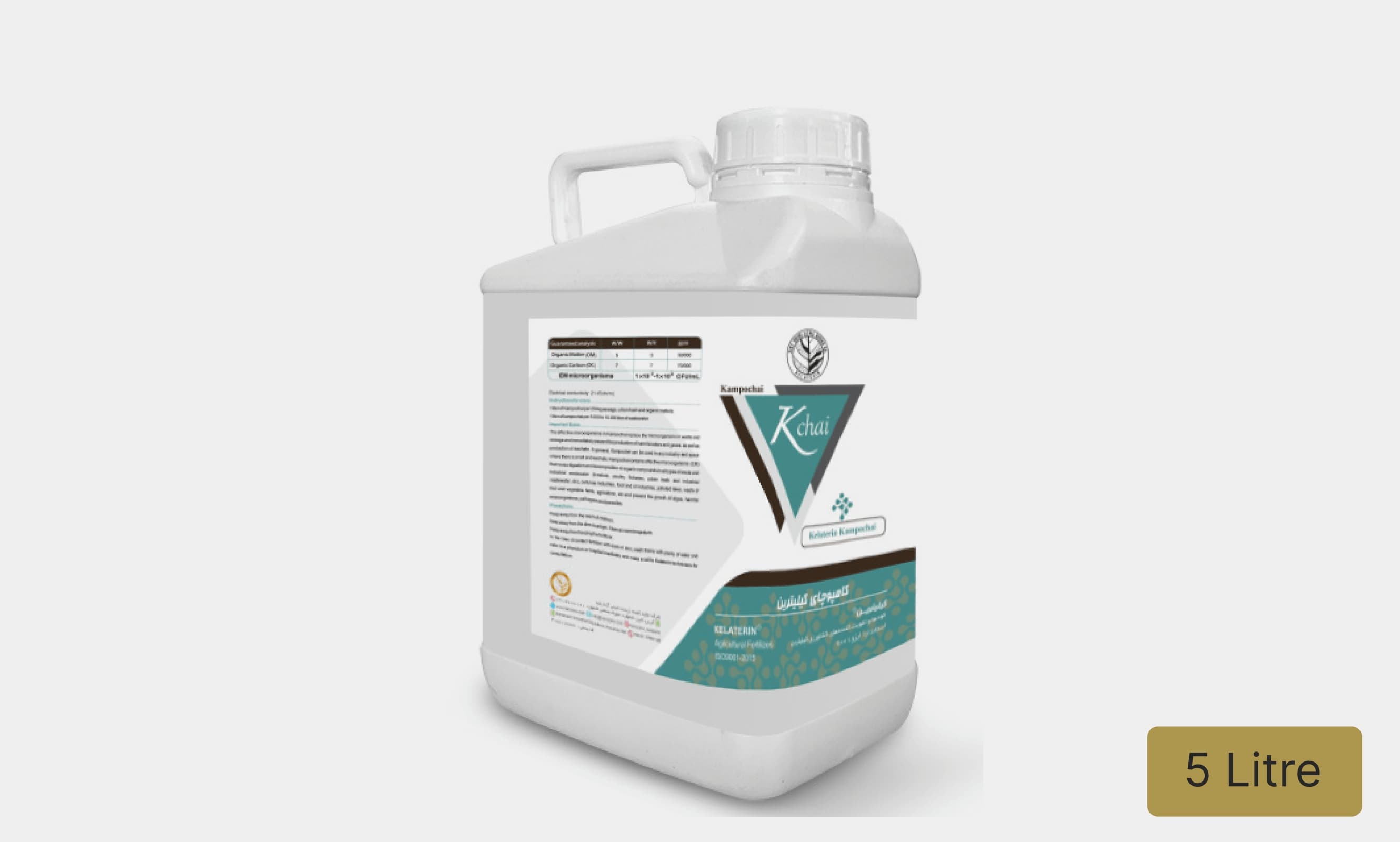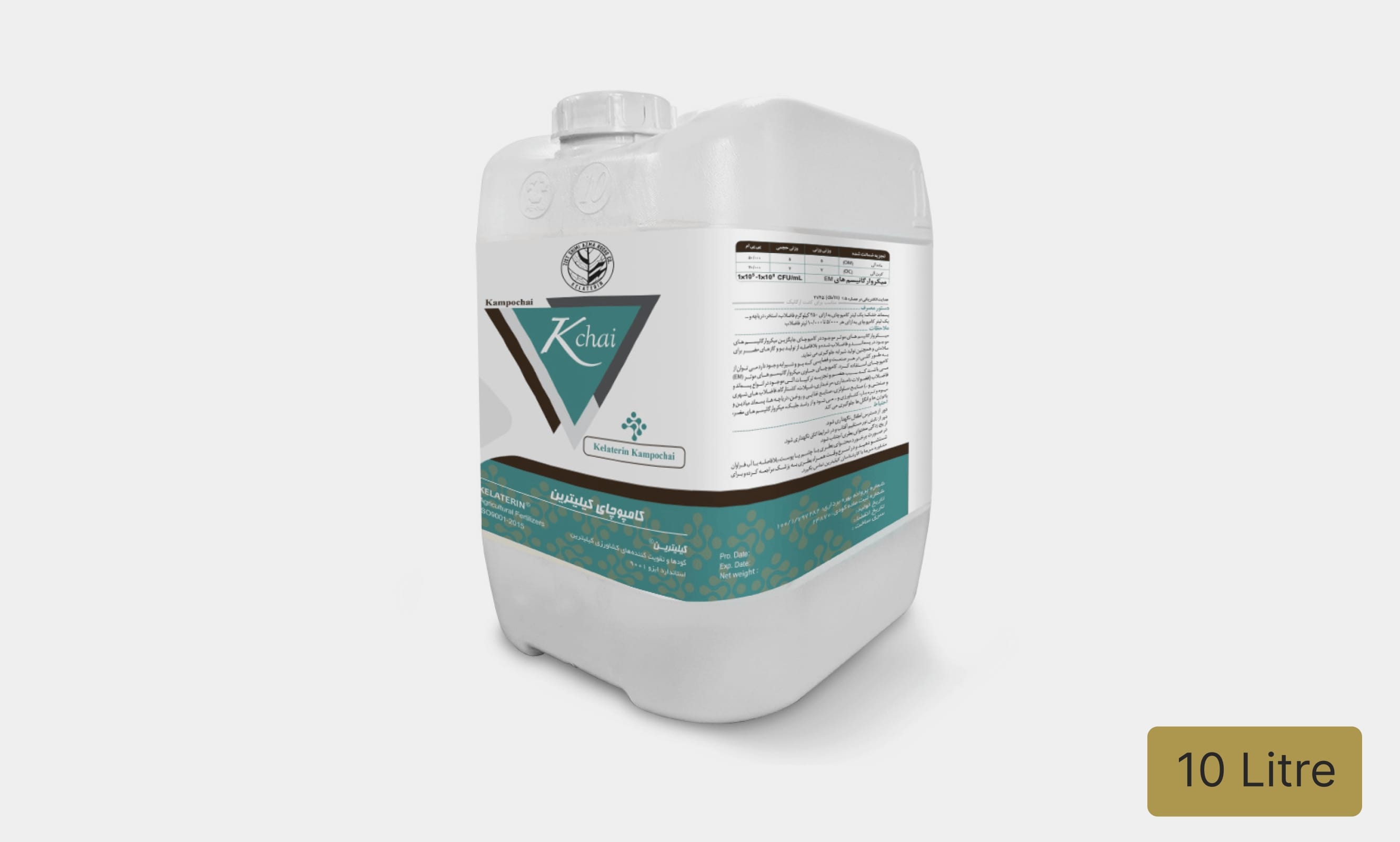Kampochai:
Usage rate:
Irrigation: 0.5 liters per ton of dry organic matter
5-20 liters per 10 cubic meters of wastewater depending on the type of wastewater
Fertilizer registration number: 98021
Product Details:
In many cases, the use of beneficial Microorganisms in the production and processing of organic fertilizers and the amazing effects of fermented organic fertilizers on soil fertility and crop growth have been investigated. The resulting effects on plant growth nonspecifically depend on several factors, including the effect of the nutrient environment of microorganisms and the breeding activities of microorganisms on the soil and the indirect effects of metabolites synthesized through the microbial synthesis of hormones and plant growth regulators.
Benefits of using Kampochai organic fertilizer:
- Complete decomposition and fermentation of all kinds of organic materials, including livestock and poultry waste
- Decomposing and fermenting urban waste and plant and animal remains and turning them into compost
- Purification and cleanliness of wastewater and waste from pathogens and pathogenic agents
- Preventing the production of leachate and odorous gases
- Soil modification and decomposition of elements in the soil and making them available for the plant
Kampochai organic fertilizer:
Kampochai:
Usage rate:
Irrigation: 0.5 liters per ton of dry organic matter
5-20 liters per 10 cubic meters of wastewater depending on the type of wastewater
Fertilizer registration number: 98021
Product Details:
In many cases, the use of beneficial Microorganisms in the production and processing of organic fertilizers and the amazing effects of fermented organic fertilizers on soil fertility and crop growth have been investigated. The resulting effects on plant growth nonspecifically depend on several factors, including the effect of the nutrient environment of microorganisms and the breeding activities of microorganisms on the soil and the indirect effects of metabolites synthesized through the microbial synthesis of hormones and plant growth regulators.
Benefits of using Kampochai organic fertilizer:
- Complete decomposition and fermentation of all kinds of organic materials, including livestock and poultry waste
- Decomposing and fermenting urban waste and plant and animal remains and turning them into compost
- Purification and cleanliness of wastewater and waste from pathogens and pathogenic agents
- Preventing the production of leachate and odorous gases
- Soil modification and decomposition of elements in the soil and making them available for the plant


